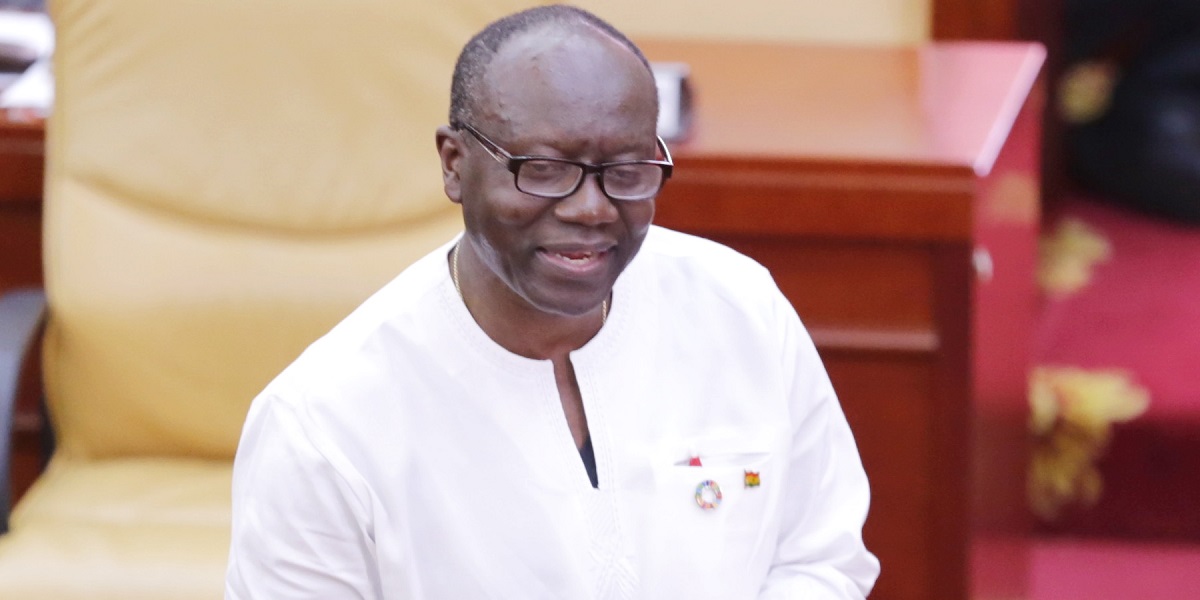 The five banks being cushioned under the Ghana Amalgamated Trust (GAT) arrangement must not consider the support they are receiving as a bailout programme.
The five banks being cushioned under the Ghana Amalgamated Trust (GAT) arrangement must not consider the support they are receiving as a bailout programme.
The Finance Ministry, which gave the caution in a statement released on Saturday emphasized that: “the GAT arrangement is to support solvent and strong indigenous banks to meet the new minimum capital requirement, and is not a bailout programme for banks that have been resolved by the Bank of Ghana.”
Governor of the Bank of Ghana, Dr. Ernest Addison, on Friday made some major pronouncements concerning the fate of the banking sector following a cleanup of the system.
Banks in the country were given up to December 31st 2018 to recapitalize from GHc120 million to GHc400 or risk losing their licenses.
Prior to the expiration of the deadline, the central bank revoked the licenses of some seven banks that according to them were insolvent, with some engaging in alleged fraudulent deals.
Some also squandered liquidity support given them by the central bank.
The Bank of Ghana allowed the GCB bank to takeover two of the banks in 2017 namely Capital and UT, and in 2018 merged the remaining five into one it called the Consolidated Bank Ghana Limited.
Other banks that were struggling to meet the minimum capital requirement entered into merger agreements.
Governor of the central bank announced that some of the banks that could not meet the GHc400 million but were solvent, will receive support from the Ghana Amalgamated Trust made up of some private pension funds in the country.
The five banks are: ADB, NIB, merged Omni/Bank Sahel Sahara, Universal Merchant bank, and Prudential bank.
While commending various agencies whose support helped to clean up the sector, the Finance Ministry assured of government’s commitment to ensuring “a strong and resilient financial sector, saying it will remain vigilant to ensure that the public is protected and that confidence in all financial institutions that are licensed by the various regulators is restored.
It also expressed confidence in the future of the country’s banking sector following the completion of the cleanup.
“With this support, alongside the comprehensive banking sector clean up exercise that took place in 2018, government is confident about the future of the banking sector in the country, with the assurance that all universal and specialized (ADB and NIB) banks in the country are stronger to support the President’s transformation agenda towards a Ghana Beyond Aid. In addition, the Bank of Ghana’s regulatory functions, under its new management have been greatly enhanced to ensure that the banking sector is safe for all citizens,” the statement added.
Banks in Ghana reduced from 34 to 23
Ghana’s financial space will now have only 23 banks, down from the 34 that were operating in the country as of January 2017.
Below is the full statement from the Finance Ministry:
Support for Solvent Indigenous Banks to meet new Minimum Capital Requirement
Government has worked with an Advisor and selected Pension Funds to structure a Special Purpose Vehicle (SPV): the Ghana Amalgamated Trust (GAT) to support solvent and well-run indigenous banks, which were otherwise having difficulties meeting the new minimum capital requirement deadline, to meet their obligations.
Press Release on Ghana Amalgamated Trust
The President of the Republic, Nana Addo Dankwa Akufo-Addo, concerned about the difficulties such well-run, solvent Ghanaian-owned banks were likely to face in raising capital on their own, set up a committee to explore various options available for these banks in order to retain and strengthen local interest in the banking sector.
Based on the Committee’s recommendation, an Advisor was appointed to facilitate the setting up of an SPV: the Ghana Amalgamated Trust (GAT), with the objective of raising funds from the private sector, mainly Pension Funds, to support eligible indigenous banks that successfully completed the due diligence process. Qualifying banks for GAT investment have been determined on the basis of their solvency, local ownership, minimum pre-investment capitalization of GHS120 million and an independent valuation by PwC.
GAT has committed funds from pension funds and other investors, through a bond programme, with proceeds of up to GHS2.0 billion to be used for equity investment in the eligible indigenous banks, as determined by the investors. The bonds issued to the Pension Funds will be listed on the Ghana Fixed Income Market (GFIM) for liquidity purposes.
The following banks are the beneficiaries of the GAT programme: Agricultural Development Bank (ADB), National Investment Bank (NIB), OmniBank Ghana Limited / Bank Sahel Sahara Ghana (OmniBank / BSIC), Universal Merchant Bank (UMB) and Prudential Bank.
In addition to providing capital for these banks, GAT also seeks to provide business development support in order to facilitate the strengthening of these banks both from a perspective of corporate governance and growth.
Government has worked with GAT to invest in NIB and ADB, which have faced significant challenges, to ensure their transformation. The plan is to strengthen both ADB and NIB and reform their operations to support Government’s efforts in promoting industrialization and agribusiness, especially for small and medium scale enterprises. ADB and NIB will also benefit in 2019 from wholesale funds under the new National Development Bank initiative.
The NPRA, SEC and BoG have been consulted to ensure that GAT is working to support the aforementioned banks.
It must be noted that, the GAT arrangement is to support solvent and strong indigenous banks to meet the new minimum capital requirement and is not a bailout programme for banks that have been resolved by the Bank of Ghana.
The Government and all regulators are committed to a strong and resilient financial sector and will remain vigilant to ensure that the public is protected and that confidence in all financial institutions that are licensed by the various regulators is restored.
Government’s commitment to this initiative is to protect jobs, local enterprises, enhance the capacity of local banks and ensure strategic Ghanaian interests in the banking sector.
The Government expresses its gratitude to the transaction advisors: Algebra Securities Limited, KPMG, PwC, Ernst and Young, Bentsi-Entsill, Letsa and Ankomah and NTHC (the Nominee Shareholder).
With this support, alongside the comprehensive banking sector clean up exercise that took place in 2018, Government is confident about the future of the banking sector in the country, with the assurance that all universal and specialized (ADB and NIB) banks in the country are stronger to support the President’s transformation agenda towards a Ghana Beyond Aid. In addition, the Bank of Ghana’s regulatory functions, under its new management have been greatly enhanced to ensure that the banking sector is safe for all citizens. END
ISSUED BY
PUBLIC RELATIONS UNIT, MINISTRY OF FINANCE





